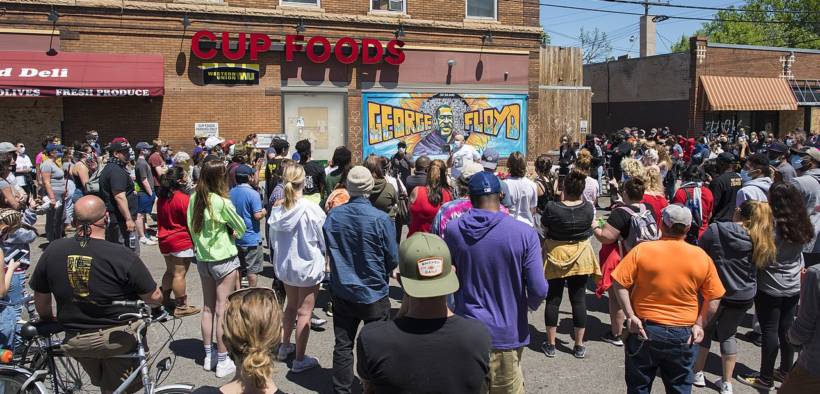Minneapolis City Councilors Pledge to End Police Department

Just nine days after protestors burned down Minneapolis PD’s 3rd Precinct, huge changes are afoot.
Nine of the thirteen councilors on the Minneapolis City Council announced their intent to dismantle the city’s police department in the wake of mass unrest resulting from the killing of George Floyd at the hands of Minneapolis police. The supermajority is significant because it cannot be vetoed.
The councilors made the announcement at an event in Powderhorn Park on Sunday just one day after embattled Minneapolis Mayor Jacob Frey was booed out of a protest event after he said he would not defund the police department. The leaders and the event of the crowd yelled, “go home, Jacob, go home” and promised to vote him out of office next year.
Despite Frey’s refusal, the city council can now pass legislation to defund and disband the police without his approval.
Minneapolis has been the epicenter of Black Lives Matter protests against police brutality and endemic racism across the country. Protests have spread to every state, major city, and an incredible number of small cities in the United States.
Often in the face of police brutality and the threat of military intervention, Americans have taken to the street to demand massive change to how police operate. With some consistencies across the board, demands are beginning to foment with a range of opinions on how to proceed.
Reform or Abolition?
The sheer spread of the protests, during a pandemic nonetheless, have buoyed hopes that direct and deep change can be made to the state of the militarized police in America. But there is a growing cleavage between reformers and abolitionists on how to proceed.
One of the most prominent sets of demands coming out of these protests has been the #8CantWait campaign. The campaign’s website mentions the abolition of police as a goal, but the eight demands are smaller reforms to police departments.
And, many major cities already have a majority of the eight demands implemented in their city. Noticeably, Denver has seven of the eight demands already in place, and a bill that goes beyond the eight demands is working through the Colorado legislature.
A competing set of demands called #8ToAbolition has gained traction in response to what some view as unambitious, reformist policies. These demands include defunding the police, removing police from schools, and investing in community self-governance.
The announcement and commitment by the nine Minneapolis city councilors are historic, but the precise form the dismantling will take is unknown and will likely be hashed out with fiery debates over the coming months.
Potential Models
Minneapolis’s Police Department and its relationship with the community has long been under fire. Philando Castile’s murder in St. Anthony just outside of Minneapolis gained notoriety in 2016. In 2018, The Star Tribune found that 63% of those killed by police were black, despite only making up 19% of the local population.
The vast majority of Minneapolis police officers do not live in the city, a fact that leads many to believe they reside in mostly white enclaves surrounding the more diverse Minneapolis.
With this distrust and a massive wave of direct action resulting from George Floyd’s murder, there has been a renewed call to drastically reshape the justice system.
What the police would look like after dismantling is still up for debate, but the talk in Minneapolis thus far has been for a radical reimagining of how the law is enforced.
One often-cited model is Camden, New Jersey, once one of the deadliest cities in America. In 2013, the Camden Police Department was dismantled and brought back as the Camden County Police Department with lower pay and more officers.
The Camden model has had only a short time with its focus on community policing, and the jury is still out on its effectiveness, but homicide has dropped drastically since the change.







